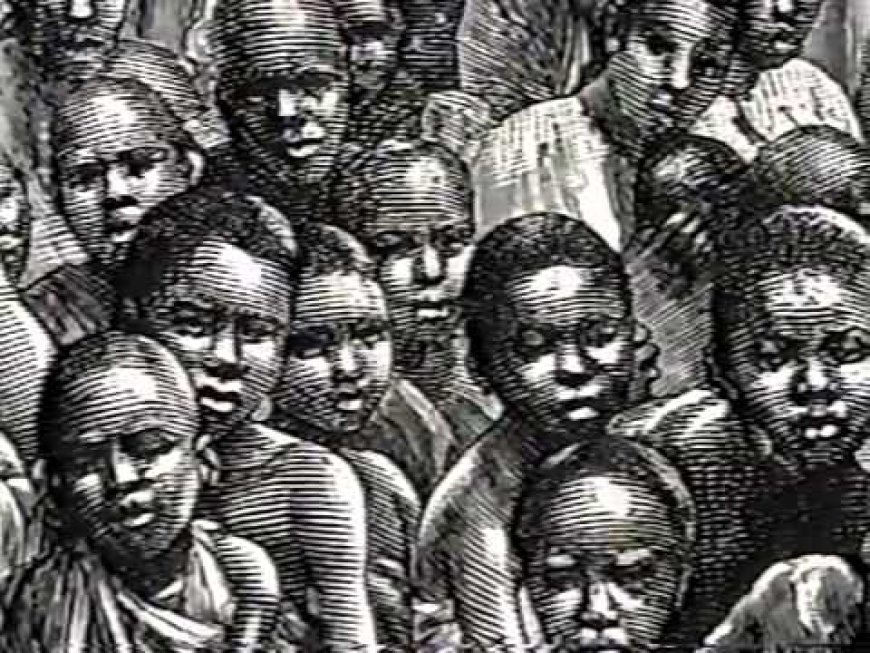The Middle Passage refers to the harrowing maritime journey undertaken by enslaved Africans as they were forcibly transported from their homeland to the Americas during the transatlantic slave trade. This period, spanning from the 16th to the 19th centuries, represents one of the darkest chapters in human history. The tragedy of the Middle Passage is not merely a historical recount; it confronts us with moral questions that challenge our understanding of humanity, dignity, and the divine. What becomes of our faith when confronted with such egregious suffering? How can one reconcile the presence of a benevolent God with the atrocities committed in His name? These contemplations urge us forward into an exploration of this somber subject from a Christian perspective.
To appreciate the enormity of the Middle Passage, we must first consider its origins within the broader context of the transatlantic slave trade. Beginning in the late 15th century, European powers sought to exploit African labor as a means to cultivate their lucrative plantations in the New World. The demand for sugar, tobacco, and cotton led to a grim enterprise that stripped millions of their freedom, their families, and ultimately their lives. Enslaved individuals were often captured through betrayal, warfare, or the deception of local leaders, leading them to endure unspeakable horrors long before they ever boarded a slave ship.
Once captured, the enslaved were subjected to brutal treatment. Thousands were herded into overcrowded and squalid holding facilities, awaiting transport. The journey across the Atlantic was often a precursor to death; mortality rates during the Middle Passage were phenomenally high, with estimates suggesting that between 15% and 25% of those aboard perished due to disease, malnutrition, or suicide. The cramped, inhumane conditions belied any semblance of Christian charity, leaving one to wonder: where was the compassion and mercy heralded in scripture?
As the ships set sail, the enslaved Africans found themselves shackled side by side, confined in tight quarters for weeks, if not months. Disease swept through the vessels, and the air became rancid with the stench of human waste, sweat, and despair. This reality poses a difficult challenge for contemporary Christians. How does one reconcile the blatant disregard for life’s sanctity inherent in this aspect of history with the teachings of Christ that advocate for love, compassion, and justice? The cognitive dissonance provokes important introspection, urging believers to confront the failings of individuals and institutions that perpetuated such acts in defiance of biblical precepts.
From a historical perspective, the conditions of the Middle Passage can be articulated as not merely physical suffering, but a profound spiritual crisis. The enslaved were removed from their cultural roots, family structures, and faith traditions. Stripped of their identities, many faced the profound psychological toll of being reduced to property. And yet, amidst such devastation, one can find flickers of hope. Many enslaved Africans clung fiercely to their faith, adapting their spiritual practices and infusing them with newfound meanings. They often sang songs, their spirituals reverberating with both pain and resilience—creating a thread that linked their past to an uncertain future.
Yet, as Christians, we must also grapple with the theological implications of the Middle Passage. Just as the Israelites wandered in the wilderness, seeking deliverance from enslavement, the African captives on these ships yearned for liberation. This narrative evokes a complex interplay of divine justice versus earthly depravity. Would God intervene to restore dignity and sanctity to those trapped in the depths of such misery? Many eventually found refuge in the robust faith communities that emerged in the Americas, wherein the tenets of Christianity provided a source of solace and resistance against their oppressors.
The legacy of the Middle Passage is inextricably intertwined with the ongoing struggle for racial justice and reconciliation, making it a critical point of reference for contemporary Christians. The harrowing tales of suffering call us to reflect on our approach to social justice. Are we living embodiments of the love and justice that we profess? How can we advocate for those currently marginalized in society? This reflection is not mere intellectual exercise; it is a moral imperative that beckons us to act, to break the chains that continue to bind humanity.
In conclusion, the Middle Passage stands as a powerful testament to the resilience of the human spirit in the face of unthinkable adversity. By approaching this dark chapter through a Christian lens, we are tasked with not only recognizing the historical injustices of the past but also with discerning our ethical responsibilities in the present. It is a call to embody the love and justice of Christ while confronting the systemic evils that permeate our societies today. The tragedy of the Middle Passage resonates as a clarion call: “What does it mean to respond to suffering?” This question, though profound, pertains to our capacity for empathy, our willingness to challenge the status quo, and our commitment to fostering a world that reflects divine love and justice.



